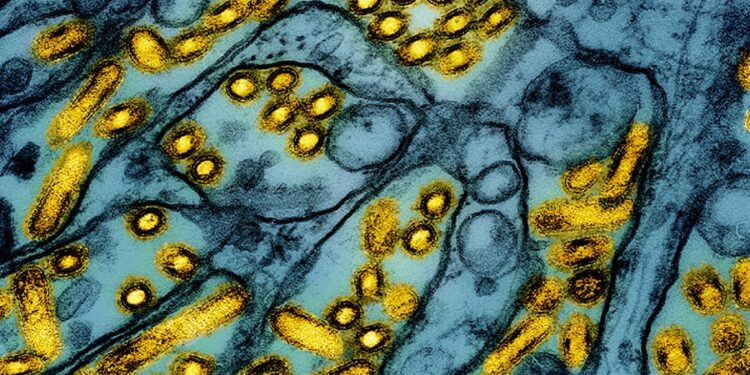
MARYLAND (DC News Now) — State laboratory testing detected H5N1 avian influenza (HPAI), more commonly known as bird flu, at a poultry farm in Caroline County, according to the Maryland Department of Agriculture.
The case, the first at a Maryland commercial poultry operation since 2023, was detected through routine sampling of a broiler operation and an investigation. The department noted that the positive result is the third in the Delmarva region in the last 30 days, after two commercial facilities in Kent County, Del., also returned positive results.
Avian influenza is a “highly contagious airborne respiratory virus” that often spreads among birds through “nasal and eye secretions, as well as manure. ” However, according to agriculture officials, the risk of transmission between birds and the general public is low, while those who work at dairy farms or with poultry may be more at risk.
Symptoms of bird flu, according to the Cleveland Clinic, include:
- Pink eye (conjunctivitis)
- Fever
- Fatigue
- Cough
- Muscle aches
- Sore throat
- Nausea and vomiting
- Diarrhea
- Stuffy or runny nose
- Shortness of breath (dyspnea)
Due to the positive result, officials have quarantined all affected areas, and infected birds on the properties have been killed to prevent the spread of the disease, according to state agriculture officials. Birds from affected flocks will also not enter the food system.
“High Pathogenic Avian influenza or HPAI does not affect poultry meat or egg products, which remain healthy and safe to eat and handle,” said Maryland Department of Agriculture secretary Kevin Atticks. “The Maryland Department of Agriculture, local health department, USDA and partner organizations are working diligently to address the situation, including quarantining and testing nearby flocks. We continue to urge commercial growers and backyard flock owners to be on heightened alert for HPAI.”
Farmers can find guidance on what to do if they suspect the virus and how to reduce exposure here.
The Maryland Department of Agriculture encourages those who suspect a possible case of HPAI to call 410-841-5810.






